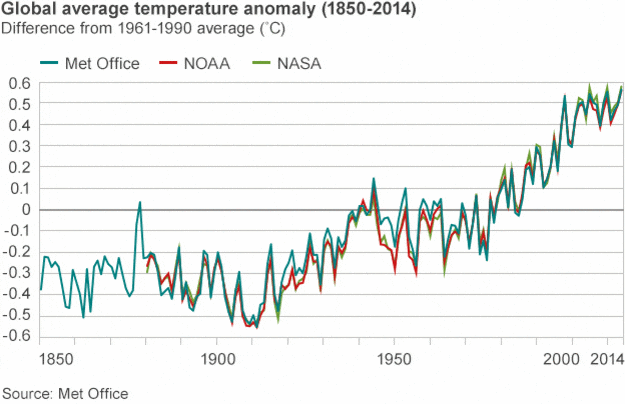Billy_Bob
Diamond Member

Well, Well, Well....
RSS shows that the Historical Climate Network and NOAA have some serious issues. There are no records that have been set. No Hottest anything..
It shows that the value on November 30 is about 0.18 C below the average of 0.33 for November. I have no idea what has happened since and I realize this applies to version 5.6 only, however due to the way the numbers can vary month to month, I can not rule out that UAH version 5.5 may not end up as low as ninth or tenth.
Another Alarmist myth bites the dust! I wonder how NASA and NOAA are going to rectify their blatant temperature manipulations?
Source



